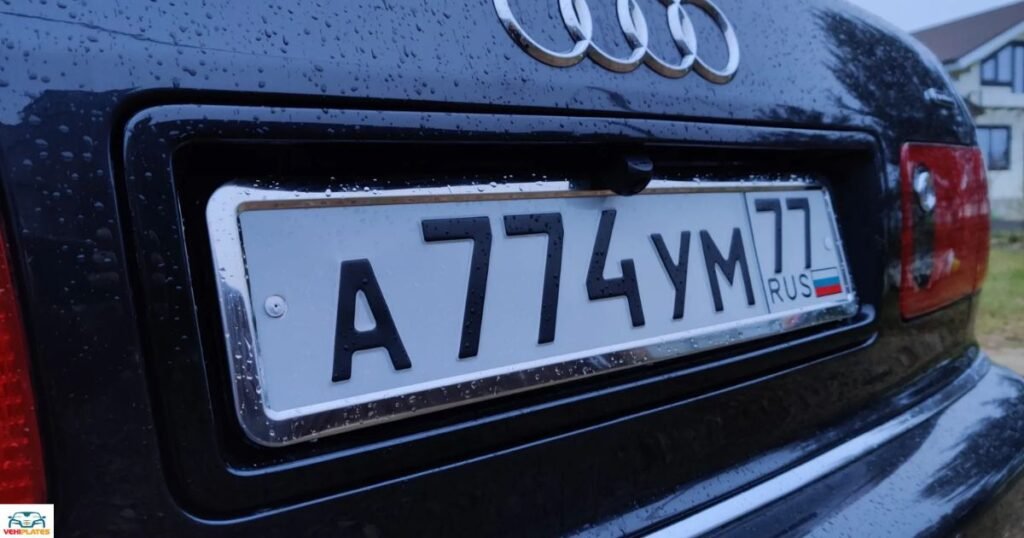License plate lights might seem like a minor detail on a vehicle, but they play a significant role in ensuring safety and compliance with traffic regulations. In this article, we’ll delve into the importance of license plate lights and whether they are mandatory according to various jurisdictions.
Importance of License Plate Lights
License plate lights serve multiple purposes beyond simply illuminating the license plate number. Here are some key reasons why they are important:
Visibility
License plate lights enhance the visibility of the vehicle’s license plate, especially in low-light conditions or at night. This is crucial for law enforcement agencies, toll booths, and automated license plate recognition systems to identify vehicles accurately.
Safety
Proper illumination of the license plate contributes to overall road safety by making it easier for other drivers to identify vehicles, especially from behind. This reduces the risk of rear-end collisions and enhances overall road visibility.
Legal Compliance
Many jurisdictions have specific regulations regarding the illumination of license plates. Failure to comply with these regulations can result in fines or citations. Maintaining functional license plate lights is essential to avoid legal consequences.
Regulations Regarding License Plate Lights

Different countries and states have varying regulations concerning license plate lights. Here are some common requirements:
United States
In the United States, license plate light requirements are typically regulated at the state level. Most states mandate that vehicles must have properly functioning license plate lights. These lights should illuminate the license plate so that it is clearly legible from a certain distance, usually around 50 feet.
European Union
In the EU, regulations stipulate that all vehicles must have functioning license plate lights. These lights should be white and emit enough light to ensure the license plate is readable under normal conditions.
Other Countries
Similar regulations exist in other countries around the world. It’s important for vehicle owners to familiarize themselves with the specific requirements in their region to avoid legal issues.
Consequences of Non-Compliance
| Consequences | Description |
| Fines | Law enforcement may issue fines or citations for non-compliance. |
| Vehicle Inspections | Non-functional lights can lead to failed vehicle inspections. |
| Legal Liability | Non-compliance could increase legal liability in accidents or violations. |
| Safety Risks | Reduced visibility may contribute to accidents or collisions. |
| Inconvenience | Non-compliance can lead to delays and additional expenses for repairs. |
Failure to comply with license plate light regulations can result in various consequences, including fines and safety risks. It’s essential for vehicle owners to ensure that their license plate lights meet the required standards to avoid these issues.
Ensuring Compliance

To ensure compliance with license plate light regulations, vehicle owners can take the following steps:
Regular Maintenance
Inspect license plate lights regularly to ensure they are functioning properly, especially in states like California and Texas where ‘What States Require License Plate Lights?‘ Replace any bulbs that are burnt out or dim.
Cleaning
Keep the license plate and surrounding area clean to maximize the effectiveness of the lights. Dirt or debris buildup can obstruct the light and reduce visibility.
Upgrading
Consider upgrading to LED license plate lights, which are often brighter and more energy-efficient than traditional incandescent bulbs. However, make sure any modifications comply with local regulations.
FAQ’s
Do I need to have license plate lights on my vehicle?
Yes, license plate lights are typically mandatory on all vehicles to ensure visibility and compliance with regulations.
What happens if my license plate lights are not working?
Non-functional license plate lights can result in fines, failed vehicle inspections, and increased legal liability in accidents.
Can I replace my license plate lights with aftermarket options?
Yes, you can replace your license plate lights with aftermarket options as long as they comply with local regulations regarding brightness and color.
Conclusion
License plate lights are indeed mandatory in most jurisdictions around the world. These lights serve important functions related to visibility, safety, and legal compliance.
Vehicle owners should prioritize maintaining properly functioning license plate lights to avoid fines, ensure road safety, and stay on the right side of the law.
Regular inspections and maintenance can help prevent issues and ensure that license plate lights fulfill their intended purpose effectively.










